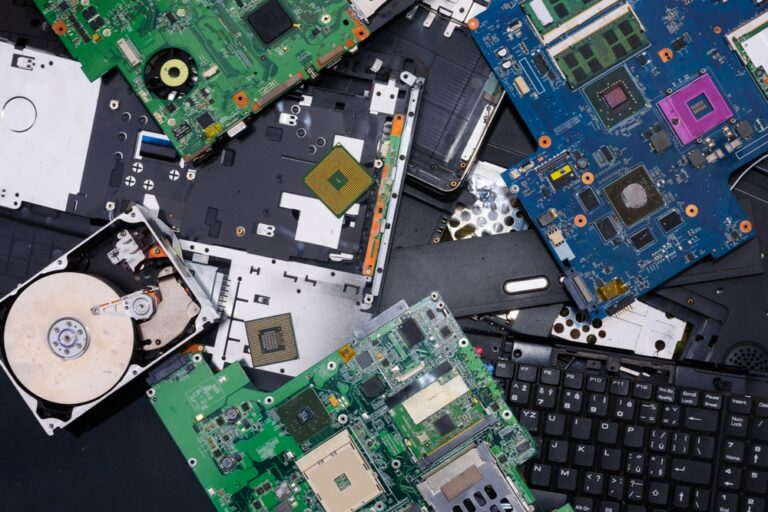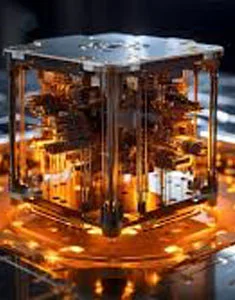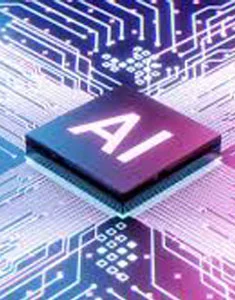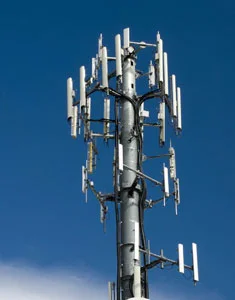Technology is constantly evolving in an increasingly fast-paced modern world. Trying to keep up with the computer hardware trends in today’s society can feel impossible at times, especially when you have to compete with ruthless competitors and innovation. It’s vital to safeguard your intellectual property (IP) rights when you develop a state-of-the-art piece of computer hardware that could be profitable in the tech industry. A computer hardware patent attorney can help.
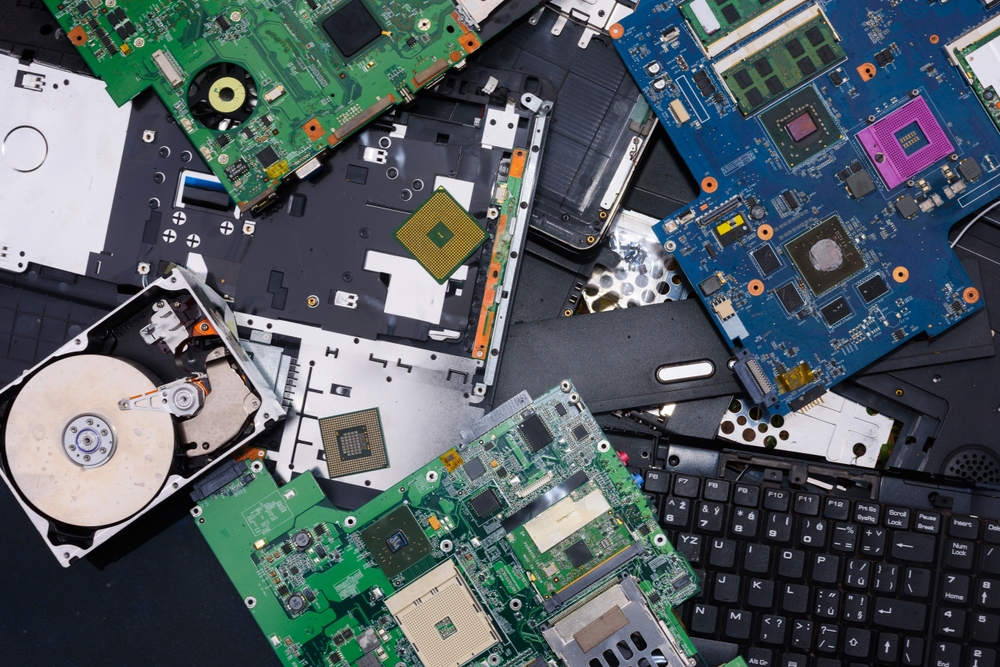
How to Determine If Your Hardware Is Patentable
You cannot just patent anything. An invention has to meet certain criteria to be patentable. Patents for computer programs, applications, and hardware are considered utility patents, which are fairly common and involve the invention or improvement of a machine, product, or development process. If anyone wishes to benefit from your hard work, they must get express permission from you, the patent holder.
The criteria that must be met to determine if your software or hardware is patentable consists of the following:
- You must be able to describe and outline the invention in great detail. You also must be able to write up a detailed description that includes how to replicate it and what it is supposed to be used for.
- You must be able to describe and outline the invention in great detail. You also must be able to write up a detailed description that includes how to replicate it and what it is supposed to be used for.
- Your invention has to be compatible with a machine to be used in a commercial or industrial fashion.
- Your invention cannot be obvious. The average tech worker must not be able to develop it randomly during their work day. It must be something unique and somewhat difficult to conceptualize.
Types of Computer Hardware Patents
Computer hardware patents protect the designs of physical computers. They prevent inventions from being stolen by someone else or another company. There are many different computers that fall under the umbrella of computer hardware patents. This can include the computers themselves, hardware, memory devices, processors, and other related equipment. Knowing the different types of computer hardware patents is essential in securing one for your computer hardware.
Utility patents. Utility patents protect useful new processes, machines, and products. They’re more common than other types of patents.
Design patents. Design patents can protect the unique, new, exterior design of your computer hardware product. For instance, they can protect the item’s shape or ornamental design. Unlike utility patents, they have nothing to do with function, only appearance.
Provisional patents. Provisional patents are temporary. They protect your intellectual property before you apply for a patent. However, you only have one year to start applying.
Plant patents. Plant patents are not applicable to computer hardware; however, the other forms of patents could be relevant.
The first step of applying for a computer hardware patent is a patent search, which ensures your hardware is a new, unique invention. After a successful patent search, you can begin the application process. Your application must describe your invention’s functionality, unique aspects, and why it’s different from other products. It must be clearly written in comprehensive detail.
Understanding intellectual property law in the computer industry can be incredibly complex. You may struggle to determine if your hardware is patentable, and you could face issues with infringement later. This is why hiring an intellectual property attorney is crucial. They can help you conduct a patent search, file an application, and address any problems that arise.
When you meet with a patent attorney to describe your hardware invention, you must be able to provide the attorney with a clear and detailed vision of your invention. Remember, a patent in the United States, including utility patents, tends to last around 20 years from the date the patent is filed. This timeline can vary depending on the specific patent and invention. Here are some questions your patent attorney may have for you regarding your invention:
- What makes your invention unique?
- What does your invention do?
- What hardware or software problems does your invention solve for the industry?
- How does your invention work?
- How is your software able to handle and process information?
- What does the user interface look like?
- How is the hardware used? Are there buttons or some other forms of control?
- Which part of the program do you intend to patent? The whole thing, or just parts of it?
How to Protect Your Hardware Patent
A computer hardware patent attorney can help you enforce your patent through various legal avenues. Here are some of the significant ways a computer hardware patent attorney may help you:
- Patent Protection: Above all, a patent attorney assists you with protecting your patent. When it comes to hardware patents, we can help you pinpoint the patentable elements of your invention and help you draft a patent application for every part of your invention that needs it.
- Trade Secret Protection: The technology industry is built largely on a foundation of trade secrets. Without trade secrets, the industry simply would not be as profitable as it is. We can help you protect your confidential information and ensure protective measures are taken so your trade secrets are never disclosed to unauthorized parties.
- Copyright Protection: You may want to consider establishing a copyright on your hardware or software designs. Copyright protection can be an additional layer of defense against infringement.
Bold Patents has helped several inventors protect their intellectual property with computer hardware patents. Below are just a few examples:
![]()
- Patent: US11804513B2
Q: How Much Does a Software Patent Attorney Cost?
A: The costs of a software patent attorney can vary. Every software patent is different. Each case has its own specific details and circumstances that make it unique from all others. In addition, certain factors have to be taken into consideration before a patent attorney can establish their fee. These factors include the attorney’s experience, the amount of time it will take to develop the application, and the complexity of your hardware or software.
Q: Can You Patent Computer Hardware?
A: Yes, you can absolutely patent computer hardware. Developing a new form of computer system or some other associated technology could be very lucrative for you if you patent it. Before you can do that, you must make sure that your design meets certain criteria. It must be inventive, new to the industry, non-obvious, and applicable to the industry. If you are interested in pursuing a patent, you should speak with a computer hardware patent attorney.
Q: What Can’t Be Patented in Technology?
A: There are multiple concepts that cannot be patented in the technological world. These include:
- Ideas: Only the practical application of an idea can be patented. Not the idea itself.
- Formulas: Mathematical formulas cannot be patented, as they are considered laws of nature.
- Business Methods: The methods of conducting business are considered technical and cannot be patented.
- Immoral Inventions: Any invention that is created entirely to hurt human or animal life cannot be patented.
Q: What Kind of Lawyer Do I Need for Inventions?
A: If you invent something and wish to pursue a patent for it, you should consult with a patent attorney. A patent attorney is a lawyer who focuses entirely on intellectual property law and helps inventors preserve their legal right to secure patents for their inventions. A patent lawyer can even help you fill out the application.
Reach Out to Our Computer Hardware Patent Attorneys Today
When you develop a technological invention and wish to profit from it, it’s wise to seek out the assistance of a computer hardware patent attorney. It can be frustrating and enraging to learn that someone is trying to profit from your idea or your hardware. Pursuing legal action against them can prove difficult, but a patent attorney can help you build a robust case against them.
The legal team at Bold Patents understands your frustrations and can help you not only secure your patent but enforce it should you ever have to. Contact us to schedule a consultation with a valued team member. Our team can review your case and help you develop a winning strategy.
